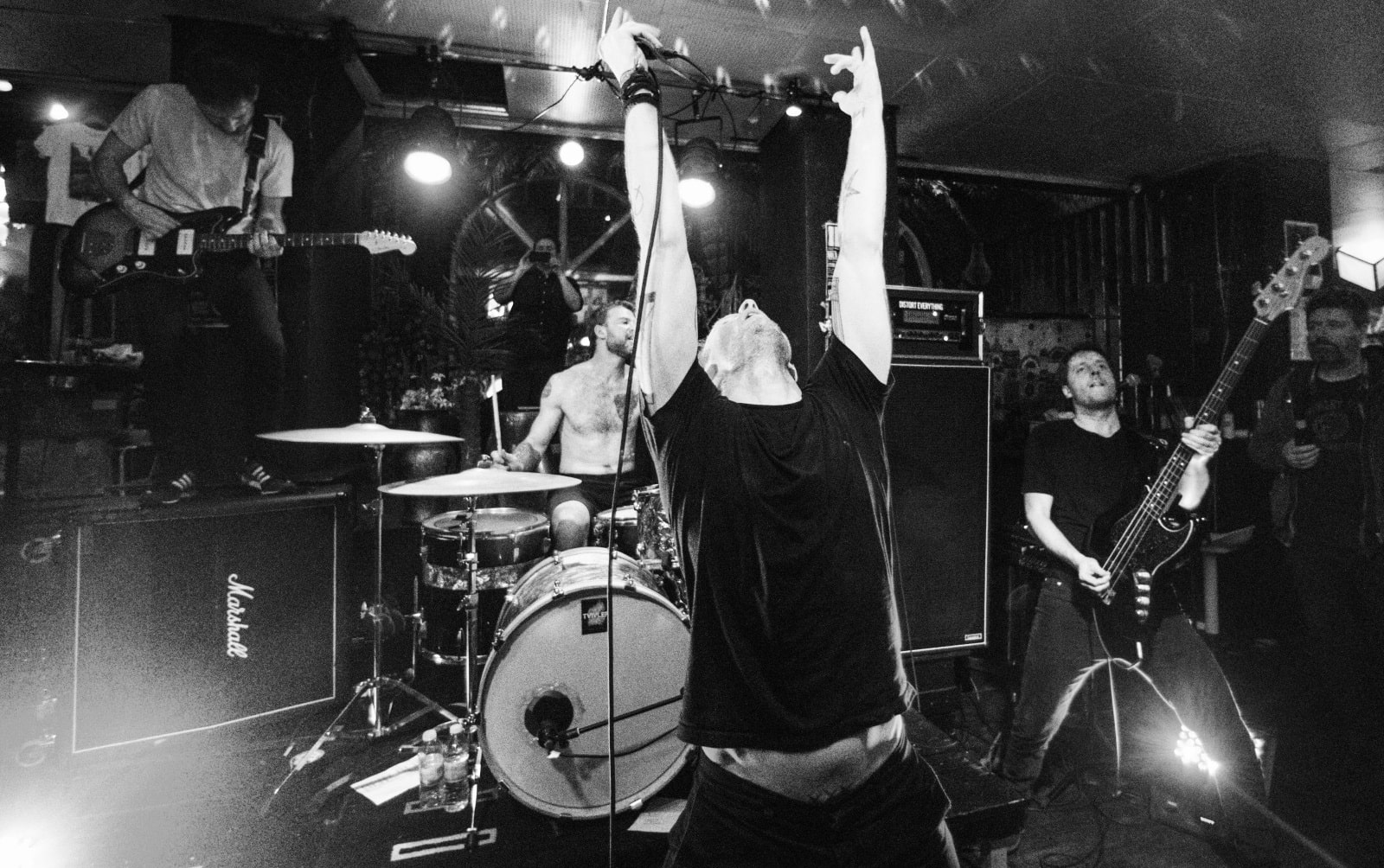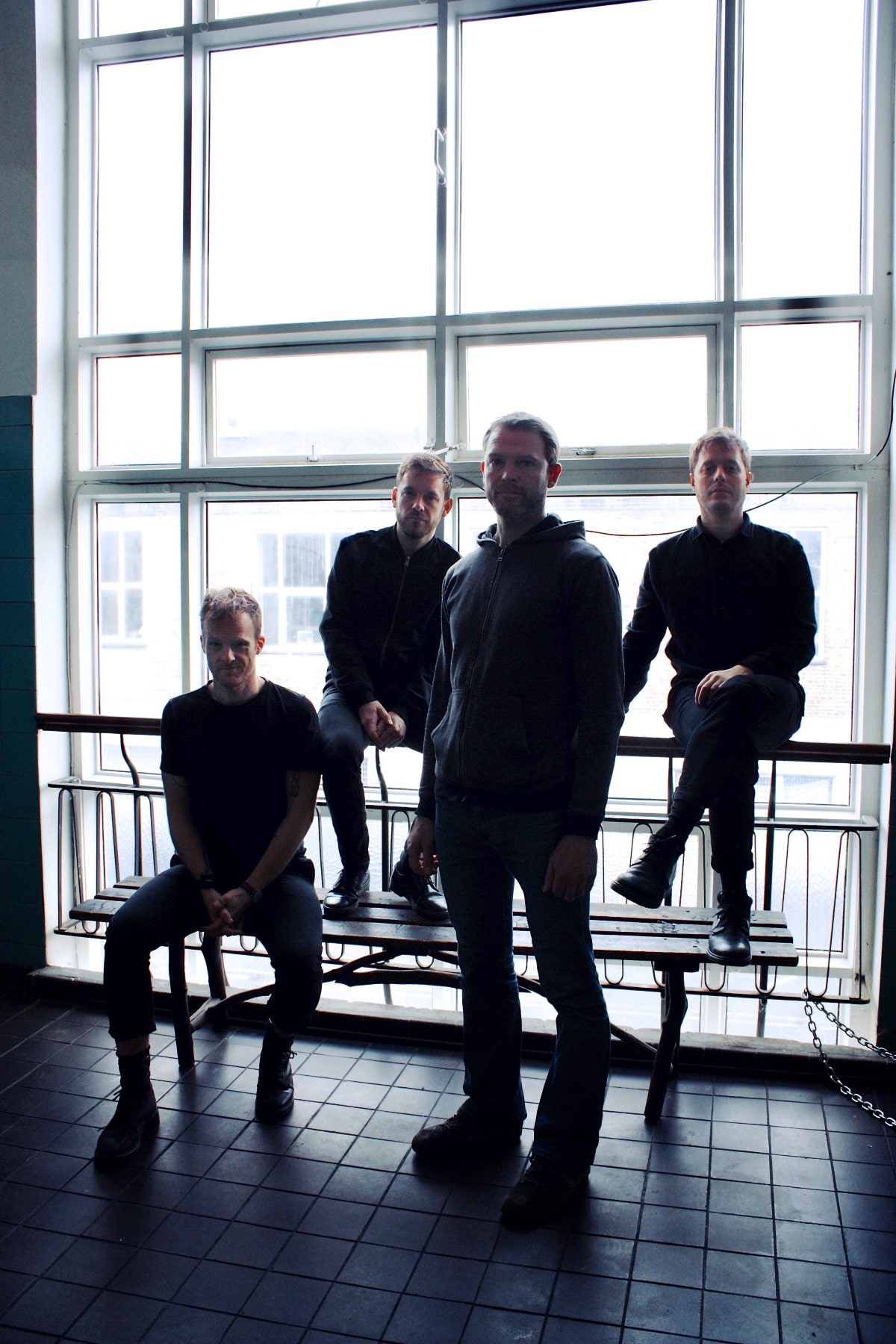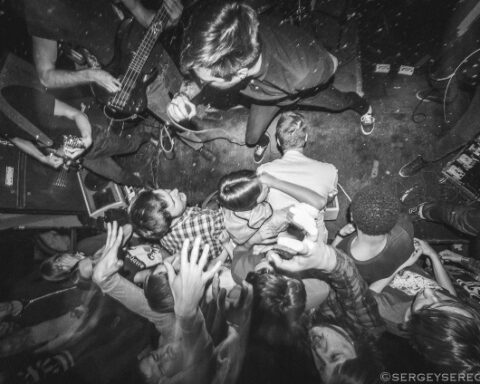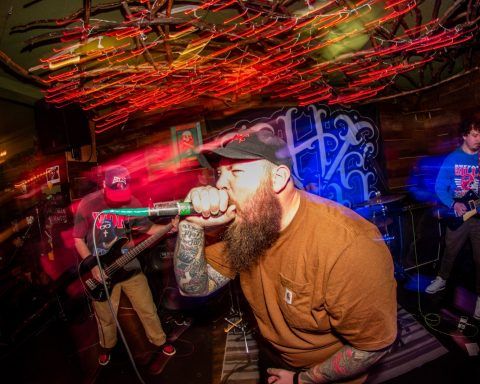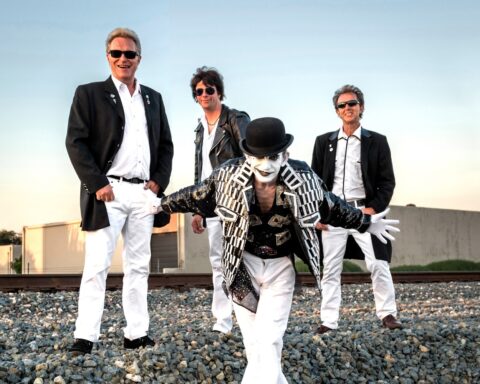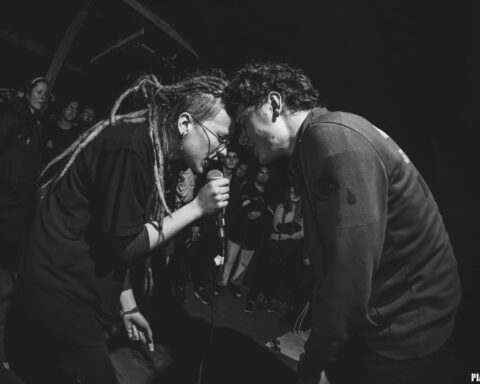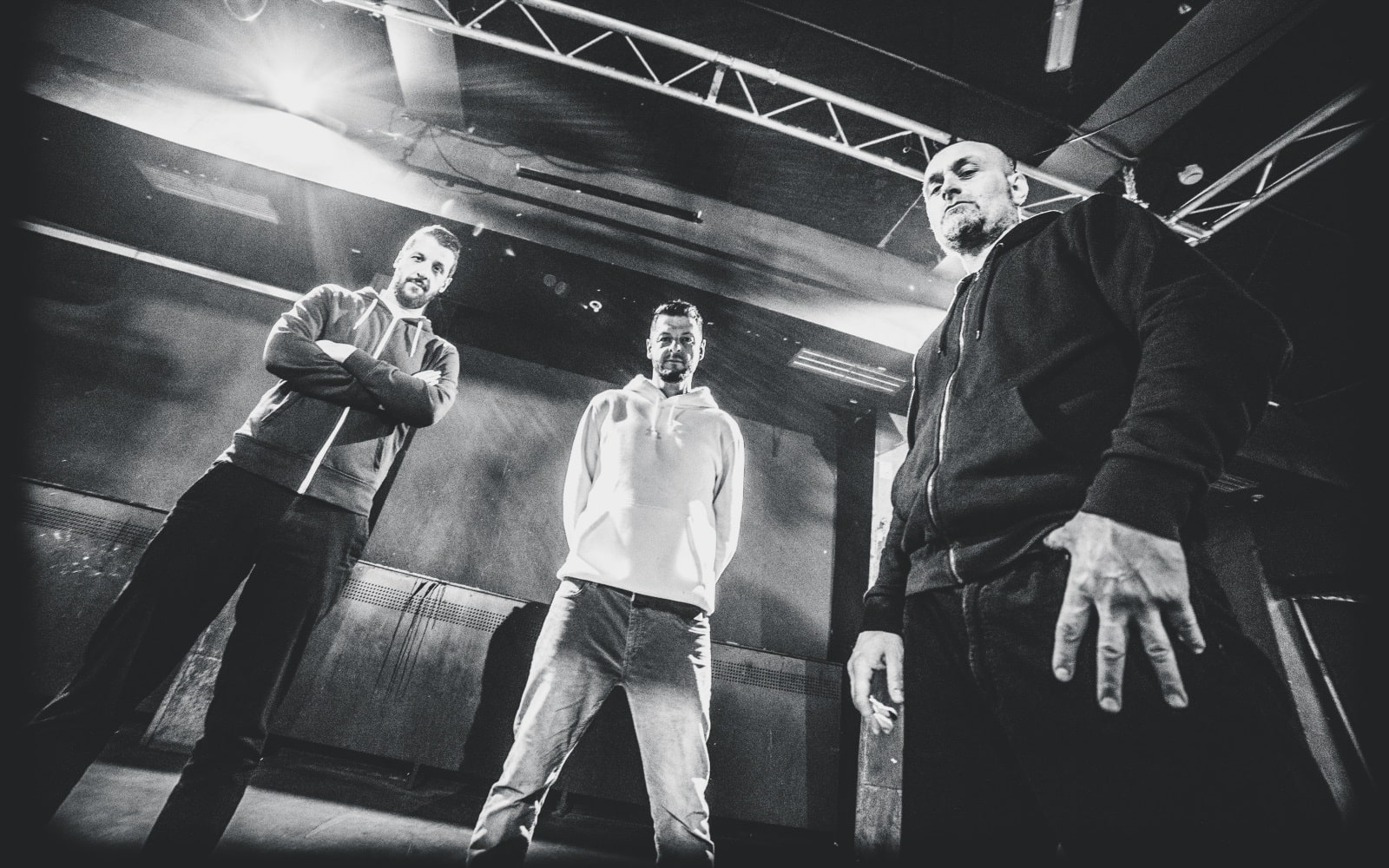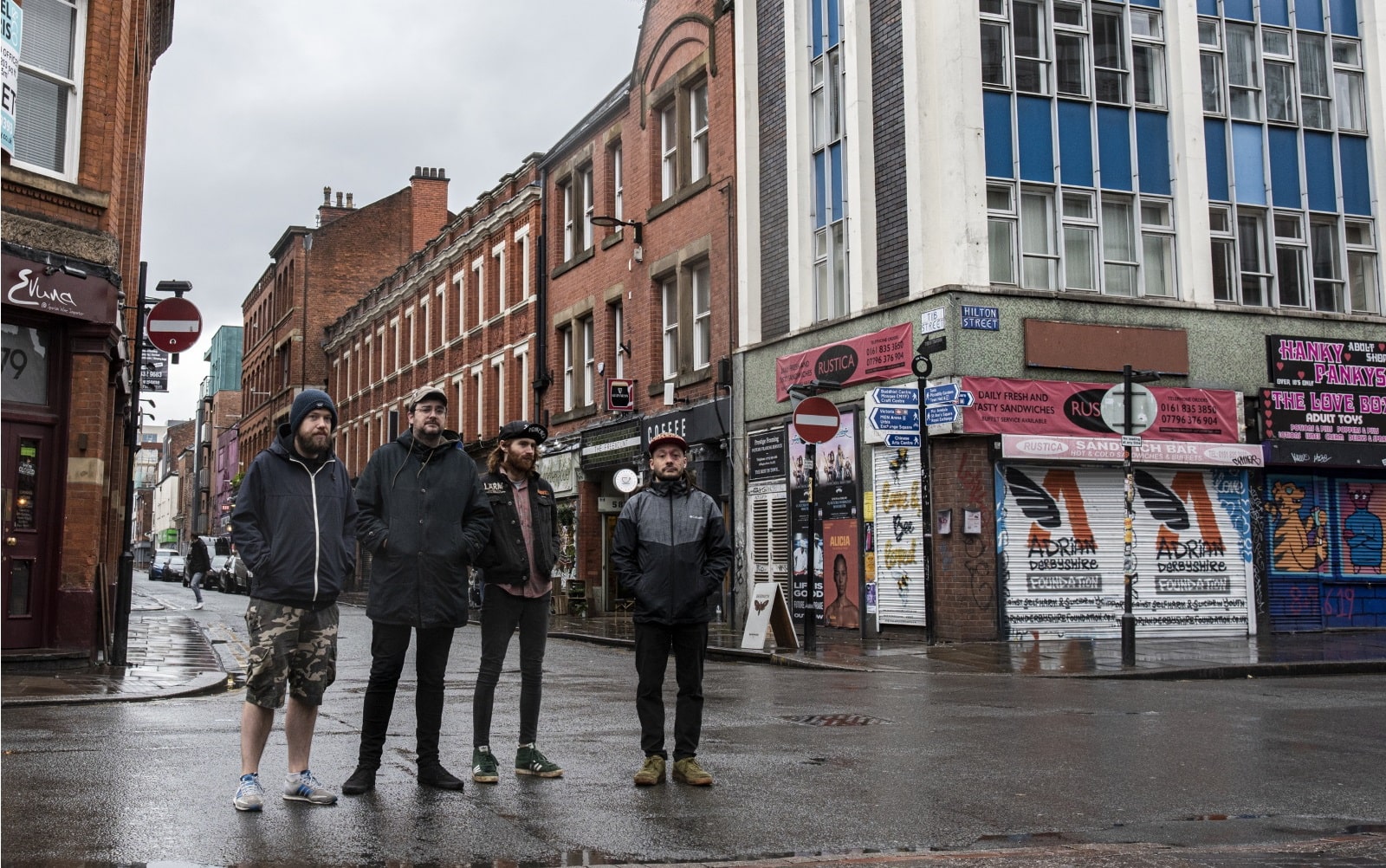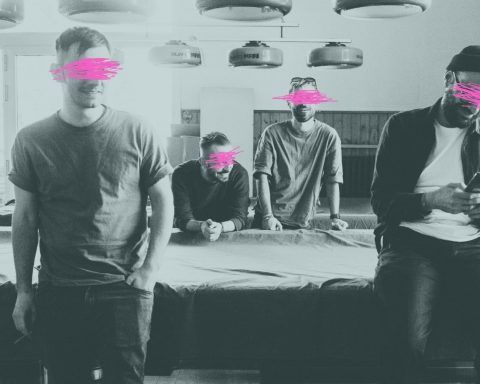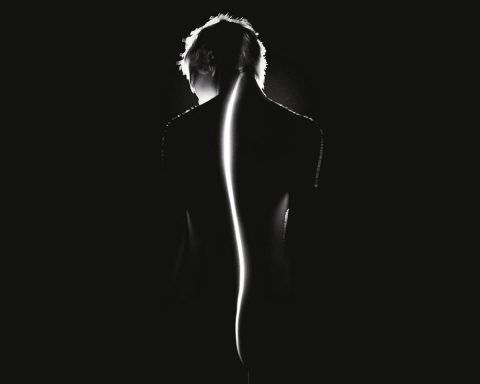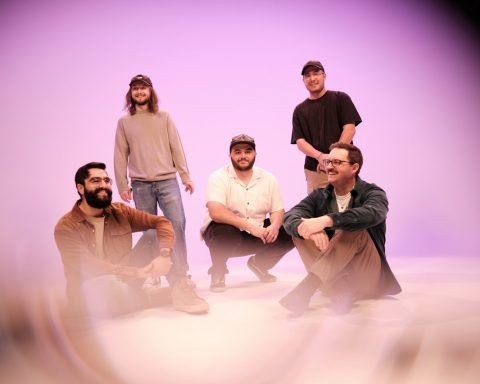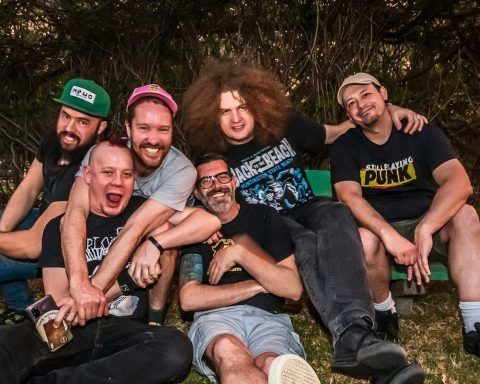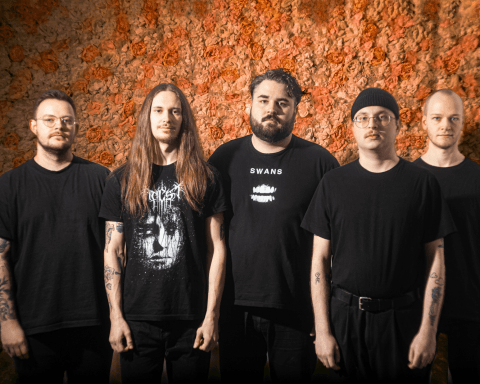Just released through their own label called Negativ Psykologi (Negative Psychology), This Charming Man Records in Germany and Nefarious Industries in the US, “EGO”, the new offering from Copenhagen based alt punks TVIVLER is an album of courage and defiance, an interesting offering on relations and relations to self, about knots and inner monstrosities. It is songs in the neoliberal Copenhagen, songs from late modern life, songs about the insides of capitalism, about keeping up without holding on. It is an album of songs about reclaiming life from hopelessness. About wanting and committing to what is important. The fifteen songs on the album channel inspiration from both straight up punk rock, ambient drone and noise rock: drums, bass, guitars, and voice. Each song has been cut to the bone; it’s pure maximalism. The album is a tribute to punk rock at its purest but also challenges the dogmatism that often comes with it. Today, we’re giving it another nod with a special first-hand commentary from the band, breaking down the record, their local music scene amidst Coronavirus pandemic. As a usual dessert, we arranged some other bands recommendations and a special ‘top 10’ list of genuinely amazing things.
All members of TVIVLER have been active on the Danish scene for a long time. Feltheim and Clausen were in the hardcore band Children of Fall and mathrock outlet Obstacles, Burø sang for Lack, and Ogstrup is still active with Town Portal. Throughout these bands the music has always been adventurous, expressive and energetic. TVIVLER is the logical continuation of this spirit; it’s a punk band with equal love for Blondie and Brutal Truth.
Guitarist Thomas Feltheim comments:
𝐹𝑜𝑢𝑟 𝑖𝑛𝑑𝑖𝑣𝑖𝑑𝑢𝑎𝑙𝑠, 𝑡𝑤𝑜 𝑛𝑎𝑚𝑒𝑠.
We’re all old friends who have been active in different bands and music constellations for many years. Five years ago we decided to team up and write songs together. In the beginning we didn’t really expect it to turn into a bona fide band, but more a project of sorts. The kind where demos and bits and pieces of music are mailed around. We didn’t all live in the same city at the time and were busy with other things. But as we went along and started playing shows, we got sucked into it. Guess we smelled blood and just wanted more. Now we write all our songs the old fashioned way, where everybody more or less gathers in the practice space cooking up music as a collective. The same goes for the work we do for the label. It’s also a collective effort where everyone puts in the hours possible to get the work done.
Vocalist Thomas Burø continues:
Perhaps we are a bit obsessed with detail and perhaps we got a bit carried away by the lure of recording with some people we really respect, and by having the whole lot mixed by Scott Evans whose ear we all admire; nevertheless, EGO really is an incredibly satisfying record in the sense that we did exactly what we wanted to do, how and when we wanted to. It is pure hedonism. An ode to committing to an idea and then going all out. I think we are all really pleased with ourselves for the entire process. Usually we verge on grumpy and loathful; but this time we have been strangely elated and I think the record carries that sense of creative urgency.
Continued below…
𝐶𝑜𝑝𝑒𝑛ℎ𝑎𝑔𝑒𝑛 𝑚𝑢𝑠𝑖𝑐 𝑠𝑐𝑒𝑛𝑒
Thomas Feltheim: Copenhagen have always had a pretty active and thriving punk scene. Lots of touring bands, lots of shows happening and records coming out. But also, it’s a very divided scene with identity politics in abundance. Which to my mind is a bit of a shame. When I first started going to shows and playing in bands some 20 years ago, it was as much a thirst for something different from this small-town-small-ideas mentality of my hometown, as it was a search for alternative music. I have lots of love for our local scene here in Copenhagen, but I’ve often been disappointed to see people’s willingness to reproduce these stupefying bourgeois patterns within the scene that I was trying to escape. Typically it’s small things like judging bands by what they eat, drink, wear and so on. All these minimal identity markers, that doesn’t really matter, but often get loads of attention and then slowly start taking center stage. It’s so tiresome.
When we’re touring abroad with Tvivler, we always love to play towns where the local scene is just about big enough to exist as a scene, but still too small to get divided. Where people have to stick together, because if they don’t, they have nothing at all. With our former band (Obstacles), we were on this tour that took us close to the border of Kazakhstan. I remember we did a show at this club called Rockclub Generator. It seemed like everybody that cared just a bit for alternative music came out to check us out. Girls wearing crazy evening dresses rubbing shoulders with metal heads, local punks and old music nerds, it was a fantastic blend of beautiful weirdos sharing something together. I wish all shows were like that. It’s just much more fun and daring like that, than it is playing for the usual crossed arms and elevator eyes of the more well established scenes.
𝐶𝑜𝑟𝑜𝑛𝑎𝑣𝑖𝑟𝑢𝑠’ 𝑖𝑚𝑝𝑎𝑐𝑡 𝑜𝑛 𝑚𝑢𝑠𝑖𝑐 𝑐𝑜𝑚𝑚𝑢𝑛𝑖𝑡𝑦
Thomas Burø: By now, it should be fairly evident to most that the outbreak of Covid-19 and the various forms of societal, cultural and governmental response has demonstrated some of the mechanisms of our societies. One of these is the role of culture and art. While it was probably a legitimate and smart decision to shut down culture – both commercial, public funded and home-brewed – as a measure to prevent the spread of the virus, it has also evidenced two structural dimensions of culture: Artists and cultural workers are almost by default precarious – not only are artist among the most poor in all societies (excluding, of course, notable exceptions), but their sources of income are uncertain and only regulated to some degree by standards, tariffs and union regulations. I think artists commit to this knowingly when they decide to live off art – perhaps it is part of the allure of art that you are outside these things. But as we have seen during the last 2 months, cultural workers and artist have been brutally cut off by the impact of regulations. They have lost income from cancelled planned events, from cancelled teaching, workshopping, speaking and other gigs, from sales in relation to live appearances and so on. Some have adapted or used the state of exception to do other stuff (like write a new record, fix their archives, clean up their studio space, think, read, inquire, etc.). Some haven’t.
Personally, I have been both touched by how much solidarity and social organisation we have witnessed, but I have also been somewhat annoyed with those points where solidarity doesn’t seem to apply. For instance, between those artists that live off art and those that ‘merely’ make a life of it. We, as a band, have day jobs, so we don’t really suffer existentially, but we have suffered financially due to having everything cancelled. There are many of us. I am surprised that there has been so little organising in solidarity except for streaming concerts or back yard concerts. For instance, I think many bands and artists are probably looking to autumn to rebook their tours and shows – on top of stuff that has already been planned! So, there is going to be so much supply for only a limited number of venues (and only so many days) that it can only mean that many simply will not be able to rebook shows or tours. In itself, that is what it is; but I think a lot about how this affects the ecology of art and culture; it could either strengthen local art and cultural communities through solidary organising and common interests, or the opposite, increase competition and provide venues with an increased leverage to push fees (unless of course, venues take upon themselves to not use that leverage) and in turn push cultural mediators like managers and bookers, and artist to have their own interests in mind. I mean, if we accept that a condition of any creative environment is a multiplicity of people who do all kinds of creative task in a criss-cross fashion, that is, that a creative community is an entangled mess of venues, artists, studios, media, mediators, festivals, engineers, video makers, photographers, graphic designers, music stores, and what have you, then my worry is that if people act in self interest, then much of that system will be hurt. The cultural infrastructure will take some damage. Venues go bankrupt, artists stop doing art because they can’t live of it, festivals restructure their budgeting towards more commercial and less adventurous curations. So far, it is still completely uncertain what will be the effect of this – but an early indicator is that some venues for live music that are already run on a tight budget are in danger.
I could go on. The point is that if we accept that arts and culture is an ecology, then, just as when it comes to a natural ecology, then the strength and resilience of the ecology rests with its capacity to adapt, to reinvent, to mobilise resources and to incorporate the damage and recover from it. That is not easy nor pretty. It is going to take time and I think we still don’t really know what it will imply.
𝑂𝑡ℎ𝑒𝑟 𝑎𝑟𝑡𝑖𝑠𝑡𝑠 𝑤𝑜𝑟𝑡ℎ 𝑐ℎ𝑒𝑐𝑘𝑖𝑛𝑔 𝑜𝑢𝑡
Morten Ogstrup Nielsen: We’ve been collectively vibing on a UK band called Broker lately. The drummer Mark is a good friend of mine – excellent drummer and recording engineer. Before this whole lockdown thing we were discussing a UK tour with them in the fall, which might still happen – let’s see. They’re the type of noise rock band that we are kinda looking towards for inspiration these days while writing new songs. It’s a parameter that has always been present in our music, but right now we feel compelled dialing that parameter to 10.
𝑇𝑜𝑝 10 𝑙𝑖𝑠𝑡 𝑜𝑓 𝑔𝑒𝑛𝑢𝑖𝑛𝑒𝑙𝑦 𝑎𝑚𝑎𝑧𝑖𝑛𝑔 𝑡ℎ𝑖𝑛𝑔𝑠
#01 Being in a band
#02 Ending a tour finding out that you’ve lost less money than expected
#03 Reading between 06AM-09AM
#04 Cooking while drinking beer.
#05 Getting lost
#06 Pastry. Gnarly, fat, disgusting loaded delicious motherfuckers.
#07 Vegetarian food. No murdered meat for these skinny fuckers.
#08 Gentlemen’s shoes.
#09 Absinth, Panodil and Red Bull. Then on stage.
#10 Distortion on bass. Gnarly, fat, disgusting distorted, tube amped scary motherfuckers.



